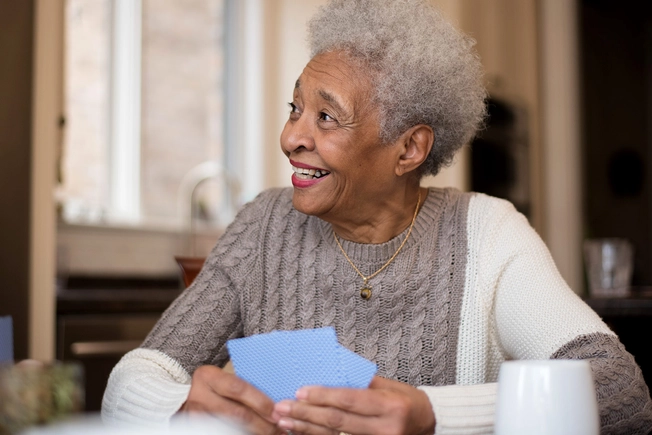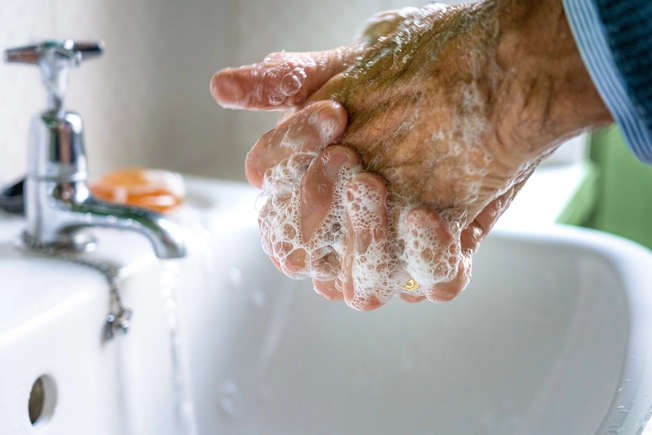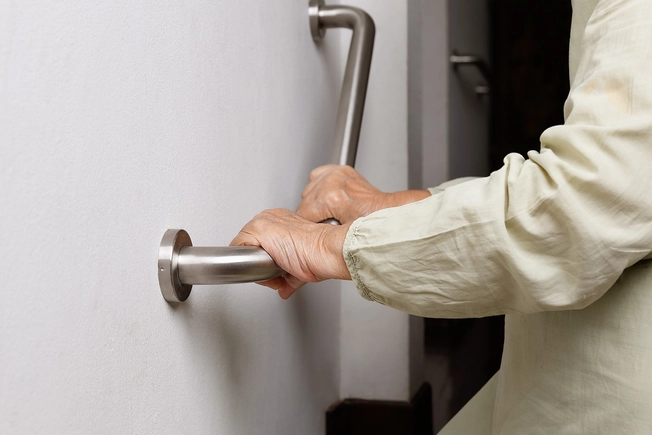- Overview
- Diagnosis & Stages
- Causes & Risks
- Treatment
- Living With
- Complications & Related Conditions
- Caregiving
- Support & Resources
- View Full Guide
Alzheimer's: Tips for Caregivers


Learn More About Alzheimer's
Caring for someone with Alzheimer's can be both rewarding and challenging. Whether you're a new or seasoned caregiver, it can help to learn more about the condition:
- Talk to a doctor. Keep a log of changes in your loved one’s memory, behavior, or mood.
- Attend classes. Nonprofits and other groups host caregiver classes and workshops.
- Read new research. Scientific breakthroughs in memory, treatment, and self-care can offer insight.

Plan for Doctor Visits
As a caregiver, you'll play a critical role in doctor appointments. Plan ahead to make the most of your time:
- Organize paperwork. Give staff copies of documents that allow you to make medical decisions.
- Avoid stress. Visit when the person is alert. Bring an activity for the waiting room.
- Be ready to ask and answer questions. Write down questions, symptoms, and notes on behaviors ahead of time. Take notes and talk about future care.

Aid Independence
People with early and middle-stage dementia can still be independent. Focus on their strengths and allow them to do as much as possible, such as:
- Getting dressed. You can help by laying out their clothes in the right order.
- Hobbies or activities. Stick with things they've enjoyed in the past. Make tweaks to allow for their current abilities.
- Making meal decisions. They can set the table, choose what they want to eat, and where to sit.

Plan Activities
People with Alzheimer’s may give up activities they loved. Caregivers can help them stay engaged. Take note of:
- Mood changes. Which activities make them happy, anxious, or grouchy?
- Physical problems. Do they tire easily or have trouble seeing or hearing?
- Time of day. Plan certain activities for the morning, when you’re both fresh.
- Disease stage. During later stages of the disease, try tasks that the person can repeat over and over.

Manage Eating Challenges
People with Alzheimer's often find it hard to eat and drink. This can lead to dehydration and weight changes. Try these tips:
- Be patient. Your loved one may get upset and refuse to eat. Offer food when they're calm.
- Use a meal service. Some delivery services are free or low-cost for people with dementia.
- Limit noise. Turn off the TV and other distractions to put the focus on eating.
- Eat together. Share each other’s company at meals.

Coronavirus Safety
Caregivers need to take extra safety measures during the coronavirus pandemic:
- Ask your doctor to fill prescriptions for a longer period of time so you can make fewer trips to the pharmacy.
- Have a backup caregiver in case you get sick, or your adult day care closes due to COVID-19.
- If the person you care for needs to go to the hospital for COVID-19, tell staff about their condition so you can offer support and share health information.

Hygiene Reminders
Older adults have a higher chance of illness from both COVID-19 and dementia. Add virus safety (face masks, hand-washing, avoiding face touching) to your daily routine. People with Alzheimer's may also need reminders about good hygiene:
- Post signs in the bathroom and other areas around your home as a reminder of proper hand-washing.
- Show them how to wash their hands.
- Offer alcohol-based hand sanitizer if there's no soap and water.

Take Care of Yourself
Family members who care for people with dementia have more anxiety and depression than other caregivers. Here are a few self-care tips:
- Ask for help. Reach out to family, friends, or an adult day-care. Even a few hours of help a week can lower your stress.
- Join a support group. Whether online or in person, you can share your experience and find resources.
- Talk to a counselor. They can help you understand your feelings and manage stress.

Make a Daily Care Plan
A daily routine can help you, and the person you care for, organize your day. Think about their:
- Likes, dislikes, interests, and strengths
- Way of organizing their day
- Bedtime and when they wake up
- Best time of day for activities
Be sure to leave plenty of time for activities and breaks. Use your schedule as a guide, but be ready to adjust if needed, such as when your loved one is tired.

Create a Safe Living Space
Having Alzheimer's raises the chance of injury. Take a close look at your living space, especially areas with dangerous items. To stay safe:
- Avoid falls. Pick up clutter. Install handrails or grab bars in areas where your loved one might fall.
- Lock up. Use locks on cabinets with medicine, alcohol, guns, cleaning products, tools, or sharp things.
- Ensure fire safety. Put matches and lighters away, and keep a fire extinguisher handy.

Tap Into Technology
Technology can help people with Alzheimer's. Here are a few ideas:
- Automatic pill dispensers. They alert you when it's time to take meds and open to the right pills.
- Smart home devices. Use voice commands to play music, control lights, and change the thermostat.
- Locator devices. You can put electronic tags on things your loved one may misplace, like glasses, keys, or a wallet. You can track items with a smartphone app or base unit.

Plan for the Future
Someone with Alzheimer's may have many years of independence ahead, but it's still important to plan for the future when it comes to:
- Decisions about driving
- Adult day care or nursing home care
- Hospice care
- Legal issues: power of attorney, advance statement to cover late-stage dementia care, a will